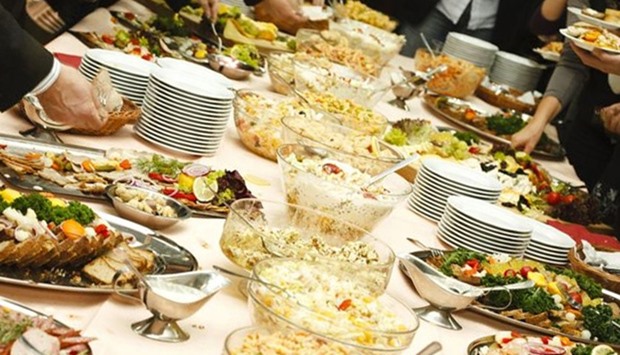Hamad Medical Corporation (HMC) has cautioned Qatar residents against over indulging in food and drinks during Eid Al Fitr festivities in order to prevent stomach upsets and intestinal disorders.
“Many people tend to overload their bodies with large amounts of unhealthy food and soft drinks during Eid celebrations. As a result, we often notice a spike in the number of patients seeking emergency treatment for gastric issues such as nausea, vomiting, stomach upset and indigestion at Hamad General Hospital’s (HGH) Emergency Department,” said senior consultant of Emergency Medicine, Dr. Saad al-Nuaimi.
“It is important to remember that the body becomes accustomed to a prolonged period of fasting during Ramadan and the transition from ‘fast’ to ‘feast’ can produce adverse effects on one’s health. In instances where there is a pre-existing health condition, such as diabetes and heart disease, the health risks are multiplied with the sudden loss of control in blood sugar levels created by the consumption of large amounts of sweets and sugars,” he added.
“People feel it is impolite to say no when offered sweets or meals while visiting a relative, friend or neighbour during Eid, it is important to remember the main purpose of fasting in Ramadan. Overindulging can also lead to rapid weight gain, which can in turn cause obesity, a leading cause of Type 2 diabetes, hypertension and back pain,” said Dr. al-Nuaimi.
Dr. al-Nuaimi has advised people to eat healthy food in moderation and avoid drinking soft drinks as much as possible during the period. They should not skip breakfast, as it will just lead to overeating during the day. When offered a selection of different foods, try to choose healthy options and fill the plate with small portions of low-calorie, nutrient-dense foods such as fruits, vegetables, whole grains and lean meats.
He has also suggested to avoid salty foods and sugary or caffeinated drinks as well as heavy fatty foods, which can cause gastrointestinal disturbances. When using oil in food preparation, use only a small amount of olive oil or other polyunsaturated fats.
People must also avoid refined carbohydrates and sugar which can cause blood sugar surges and weight gain.The main meal should be balanced with larger portions of vegetables, fruits and complex carbohydrates, e.g. beans, lentils, whole grain bread and oats.
People also must exercise regularly-30 minutes a day, five times a week and if required, consult a doctor for recommendations on suitable exercise. HMC has urged the public to view the Eid break as an opportunity to develop healthy eating habits and to commit to healthier lifestyle choices.

